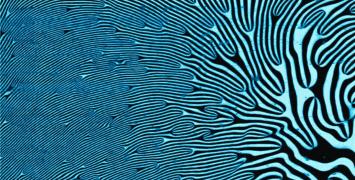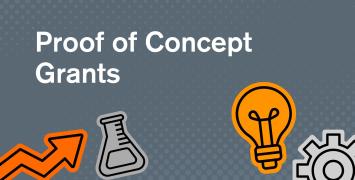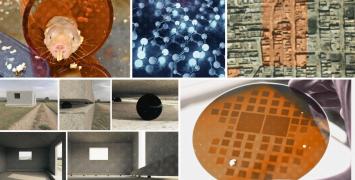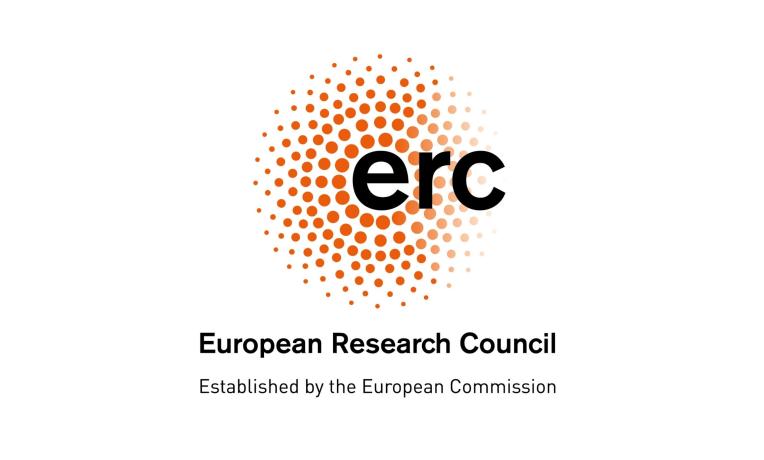
Helping conflict resolution by sharing cultural expertise

Multicultural communities need cultural expertise to solve conflicts. Currently, this knowledge is not available outside specialised circles of legal professionals who offer niche and expensive services. Existing legal databases often have a narrow specialisation and cater to Anglophone users. At the same time, expert cross-cultural knowledge is crucial to facilitating dispute resolution in increasingly diverse European societies for protecting disadvantaged social groups. In order to foster the transfer of cultural expertise, Prof. Livia Holden is developing CULTEXP, the first multilingual and cross-jurisdictional socio-legal database on cultural expertise.
CULTEXP offers cultural expertise in fourteen different languages and across multiple jurisdictions in all fields of law - ranging from international family law to Islamic law and First Nations rights, from asylum, refugee and immigration to banking, business and international arbitration. If commercialised, CULTEXP is likely to be a breakthrough in the market of resources for legal professionals, offering unprecedented open source architecture, inclusion of non-Anglophone users and user-friendly access to case law and expert reports. In this ERC Proof of Concept project, Prof Holden’s team will test CULTEXP for its potential for social interest commercialisation, and build on previous ERC-funded research that investigates the concept of cultural expertise, its use and impact in fourteen European countries.
Prof. Livia Holden is Director of Research at the Centre of History and Anthropology of Law (CHAD) Paris Nanterre and full professor at the University of Padua. She regularly provides expert opinions for cases pertaining to immigration law, family law, and criminal law in the United Kingdom, United States and the Netherlands.
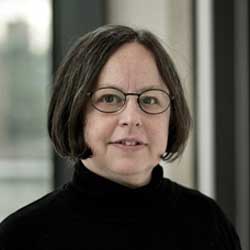
Project: The first multilingual and cross-jurisdictional database on cultural expertise (CULTEXP)
Researcher: Livia Holden
Host Institution: University Paris Nanterre, France
ERC Funding: € 150.000
2015 Consolidator Grant Project: Cultural Expertise in Europe: What is it useful for? (EURO-EXPERT)
Improving treatments for visual impairment and blindness

The death of photoreceptor cells (PR) is a major cause of visual impairment and blindness of adults living in industrialised countries. These cells are located in the eye’s retina and have an important role: they provide us with color and night vision. Current treatment options are insufficient to counteract these forms of blindness because the development of drugs and therapies often fail in preclinical stages. The transplantation of human PR’s, which could serve as a treatment option for late stages of retinal degeneration, is particularly problematic because of a lack of PR material.
Volker Busskamp and his team have developed technology which could help provide more PR material for possible treatment options. This technology, developed thanks to research carried out using an earlier ERC Starting Grant, allows fast, efficient and unlimited production of PRs. Having an unlimited amount of these important cells is essential for drug screening, further disease research and photoreceptor replacement therapies.
With his newly awarded Proof of Concept grant, Volker Busskamp wants to bring this discovery closer to the market. After finalising the last production development steps and defining the final product, his team will identify and approach industrial partners for out-licensing or further funding. The final goal is the commercialisation of induced PRs to aid the development of new drugs to treat retinal degenerative diseases and blindness.
Since 2019, Volker Busskamp is Professor for Degenerative Retinal Diseases and Freigeist Fellow of the Volkswagen Foundation at the Department of Ophthalmology, University of Bonn, Germany. He is also a research group leader at the Center for Regenerative Therapies at TU Dresden (CRTD). Previously, he was postdoctoral fellow at the Harvard Medical School in Boston (USA).
 @ Sven Döring
@ Sven Döring
Project: Inducible Human Photoreceptors for Research, Development and Therapy to Prevent Blindness (iPhotoreceptors)
Researcher: Volker Busskamp
Host Institution: University Hospital Bonn, Germany
ERC Funding: € 150.000
2015 Starting Grant Project: Transcription Factor-mediated Neuronal Cell Fate Programming in Human Stem Cells (ProNeurons)
Improving clean energy production

To achieve a climate-neutral society by 2050, the decarbonisation of the energy and transport sectors require concrete action. In today’s clean energy production, wind and solar power are crucial, but as they produce energy only intermittently, they require a ‘buffer’ to store excess energy and provide it when necessary. The gap this creates can be bridged by using Proton Exchange Membrane Fuel Cells (PEMFCs) as an energy production technology and hydrogen as a fuel. A new project led by an ERC funded researcher aims to move towards mass commercialisation of PEMFC technology.
In 2018 PEMFCs already covered 90.7% of total fuel cell market share. PEMFCs enable a zero-carbon technology that converts hydrogen and oxygen from the air into “clean” electricity, with water as the only by-product. During this process, the catalyst material plays a crucial role. Currently, the most promising catalyst, platinum, is scarce and expensive - representing almost 50% of PEMFC system manufacturing costs. To sustain the growth of PEMFC technology, it is crucial to optimise the use of platinum and lower the level found in internal combustion engine vehicles today (a decrease from approximately 50g to 5g per passenger car).
Fortunately a unique approach developed during Nejc Hodnik’s ERC Starting Grant funded project (123STABLE) has already resulted in a new synthesis strategy that can reduce the necessary amount of platinum by 50%. Professor Hodnik’s new ERC Proof of Concept funded project “StableCat” will now fine-tune, validate and scale-up the 123STABLE catalyst technology, define the path for knowledge transfer and intellectual property management, and evaluate ways to commercialise the results.
Nejc Hodnik received his PhD from the Faculty of Chemistry and Chemical Engineering at the University of Ljubljana. He completed his postdoctoral training in Düsseldorf, Germany, at the Max-Planck Institute and later participated in a Visiting Research Fellowship with an ERC funded project in Italy. He is currently Head of the Laboratory for Electrocatalysis at the National Institute of Chemistry, Ljubljana.
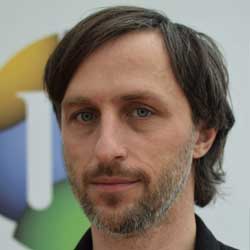
Project: Assessing the Technical and Business Feasibility of Highly-active and Stable Intermetallic Pt-alloy Catalysts for Application in PEMFCs (StableCat)
Researcher: Nejc Hodnik
Host Institution: National Institute of Chemistry Ljubljana (NIC), Slovenia
ERC Funding: € 150.000
2019 Starting Grant: Towards Nanostructured Electrocatalysts with Superior Stability (123STABLE).

Over one million people have so far died of the disease caused by the SARS-CoV-2 virus. To limit its spread, the WHO recommends "test, trace and isolate" strategy, which requires fast and wide scale testing. However, the sampling and processing complexity of currently available tests pose a challenge to our healthcare systems. Widely used polymerase chain reaction (PCR) tests take several hours and require advanced laboratory equipment, which adds to the difficulty of tracing and isolating patients rapidly.
To address this challenge, Prof. Christelle Prinz will use her recently awarded Proof of Concept grant to develop a new Covid-19 test. She will build on her previous findings and apply a method developed as part of research funded by her earlier ERC Consolidator Grant, which could help enable a single-step detection of the virus. Her team will use low-cost reagents technology to develop more affordable tests than those currently available on the market. Their goal is to develop rapid, one-step tests with efficiency superior to the antigen tests and comparable to PCR tests.
By detecting the virus directly, the test will identify only active infections. Its high accuracy would cut-down false-positive and false-negative results, while easy usage aims to eliminate the assay complexity. It could facilitate smoother workflows in laboratory and point-of-care diagnostics. The project team also foresees that this technology could be extendable to the detection of other viruses. Its affordability should make it widely used and accessible to developing countries.
Christelle Prinz obtained her Ph.D. in polymer physics from Strasbourg University and further acquired her scientific knowledge as a postdoctoral researcher at Princeton University. She is currently a leader of the research group at Lund University that investigates the interactions between nanomaterials and living matter on the cellular and organism level.
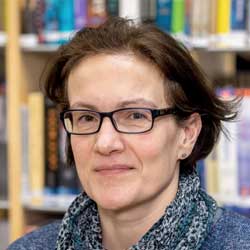 @ Lund University
@ Lund University
Project: One-step switchable fluorescent probe assay for direct virus detection (1-SWITCH)
Researcher: Christelle Prinz
Host Institution: Lunds Universitet (Sweden)
ERC Funding: € 150.000
2015 ERC Consolidator Grant: Deciphering cell heterogeneity in tumours using arrays of nanowires to controllably poke single cells in longitudinal studies (NanoPokers).

